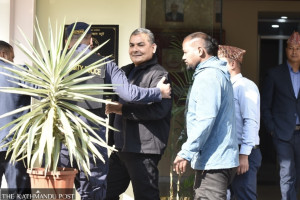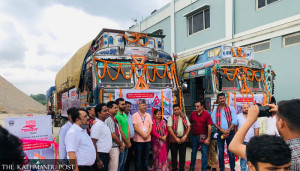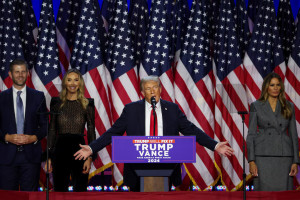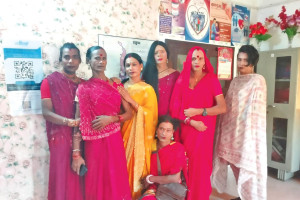National
Experts, leaders discuss impact of multi-polar world on leftist politics
China’s rise and BRI’s globalisation have transformed the geopolitical landscape of many regions and countries, professor claims.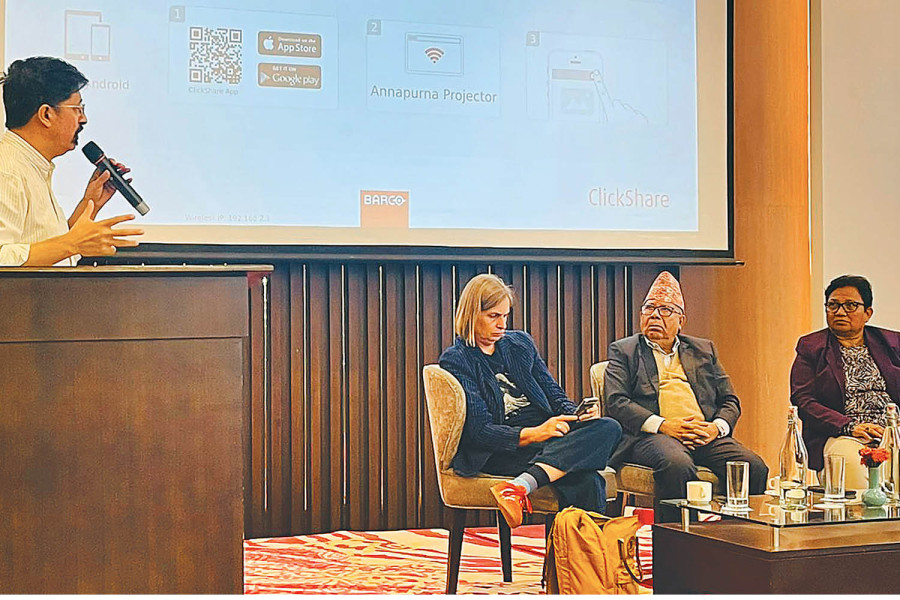
Post Report
The United States, for long the sole superpower of the world, has shrunk in might in the past decade as multiple Asian countries gain economic and political powers.
After the collapse of the Soviet Union in the 1990s, China has been growing as a counter to the US dominance. Amid perceptions that the world is shifting from unipolar to multipolar, what impact will it have on the global communist movement?
At an interaction on “Changing World Order and Geo-political Landscape: Prospects and Challenges for Left Politics in Nepal” in Kathmandu on Saturday, speakers from Nepal, India and China tried to assess the question.
In the event organised by the Foundation for Critical Discourse Nepal, Khagendra Prasai, an associate professor of political philosophy at Nepal Open University, presented his paper on the theme, with professors from India, China and the Philippines commenting.
Prasai’s paper studies leftist politics amid the current march towards multipolarity. He argued that with the current weakening of neoliberal order and transition into multipolarity, left politics in Nepal can get some boost.
“Nepali leftist political parties need to understand the nature, direction and speed of transition into multipolarity,” Prasai’s paper reads.
China’s rise and globalisation of the Belt and Road Initiative (BRI) have transformed the geopolitical landscape of many regions and countries, he claims.
Prasai sees the global south emerging as a dominant force. He also claimed that America is no longer an imperialist power, especially as it lost its status as the world’s sole superpower.
Prasai also argued that China’s Belt and Road Initiative can potentially change Nepal’s geopolitical status. Multipolarity could be a boon for the communist parties if they tread cautiously, he suggested.
Countering Prasai’s belief, professor BS Butola from the Jawaharlal Nehru University, India, said communist parties can suffer in a multipolar world. The main problem faced by the communist parties is the lack of political literacy among the people.
Political literacy should be the motto of communist parties, Butola said.
“Sight without vision is dangerous and it is the responsibility of the leftist forces to give vision to the society,” Butola said. For him, elections alone cannot sustain democracy without broad political literacy.
Urging the left political parties to work for social transition rather than transformation, Butola accused capitalists of making human beings instrumentalists.
Associate professor of political science at Delhi University Saroj Giri didn’t challenge Prasai’s argument. However, he said when talking about geopolitics, one should not forget the character of capitalism. For Giri, there are two kinds of capitalism in existence–oligarchy and corporate dominance.
As the world communist discourse is shaped by identity politics, the agenda of the working class still exists and was evident in the recent presidential campaign in the US, Giri said.
Chinese Professor Wang Lei, director of the Centre for BRICS Studies, stressed a rules-based world.
Professor Wang tried to reassure attendees that the rise of China is not a threat to any country.
Professor Walden F Bello, former member of the House of Representatives of the Philippines and a leftist intellectual, condemned the US president-elect Doland Trump.
Britta Petersen, head of the Rosa Luxemburg Stiftung New Delhi, highlighted the challenges faced by communist parties. Petersen said the multipolar world as wished by the global south has become a reality.
“A multipolar world could really be in the interest of a country like Nepal,” she said. However, she also cautioned that in a multipolar world, a lot of money could pour into countries like Nepal but such investment will often be in the interest of big powers.
Chairman of the CPN (Unified Socialist) Madhav Kumar Nepal, who was the chief guest at the event, recalled the period when communist parties were struggling to establish themselves in Nepal. Due to the reluctance of BP Koirala, the Nepali Congress founder and idealogue, to ally with the communist forces, the Panchayat regime could not be abolished during BP’s lifetime, Nepal claimed.
“Abolition of the autocratic system became possible only when Congress leaders like Ganesh Man Singh and Krishna Prasad Bhattarai forged an alliance with Nepali Communist forces,” he said.
Madhav Nepal was of the view that Nepalis need to have a balanced relationship with their neighbouring countries. “Our northern neighbour, China, is led by a communist party whereas the southern neighbour, India, is led by the bourgeoisie,” said the former prime minister. “After the fall of the Soviet Union, there were debates in Nepal on the need for changing the name of communist parties but we rejected the idea.”
He informed the visiting experts on how Nepali communists had embraced democratic values and principles by propagating the idea of people’s multi-party democracy. To prove that a communist party can be democratic, the late Madan Bhandari propagated the idea, Nepal said.
Individual-centric approach of leaders had made communist parties in Nepal corrupt, the leftist leader said.




 17.12°C Kathmandu
17.12°C Kathmandu








